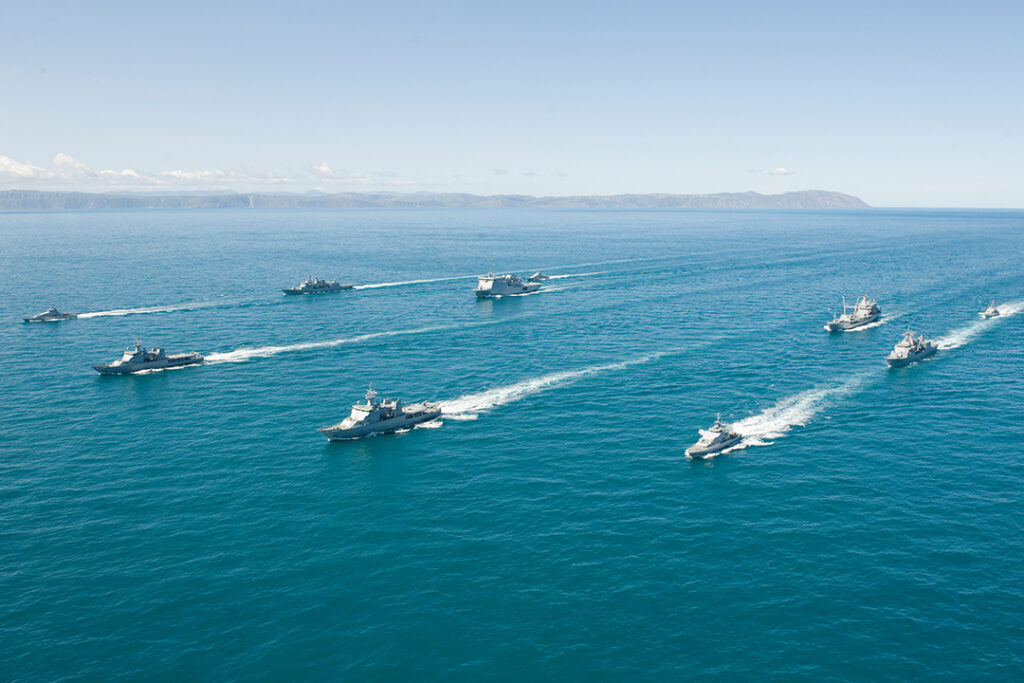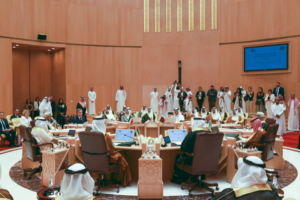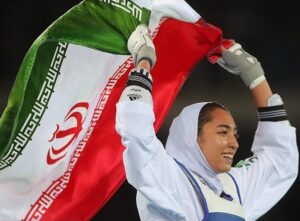There was a sense of déjà vu as British fighter jets took off from a colonial-era Cypriot military base in the early hours of January 11, 2024, to join U.S. ships, submarines, and airplanes in bombing a poor mountainous Asian country, run by a Muslim fundamentalist movement.
The attack harkened back to the first days after the Sept. 11, 2001, terrorist attacks and to an earlier era of gunboat diplomacy but with some differences: this time, the US-UK alliance was operating in Yemen rather than Afghanistan, and far more hesitantly, apparently held back by institutional memory of recent imbroglios and their less-than-optimal results.
“Operation Prosperity Guardian,” as the mission was dubbed, only got underway after the Houthis had initiated two dozen attacks over three months on shipping in the Red Sea in what the movement, formally known as Ansarullah, claims is a response to US-backed Israeli aggression against Gaza. Previously, the U.S. and its allies had intercepted 61 missiles and drones before striking land targets.
“What the Houthis have achieved so far is to increase economic pain on Israel, and the wider West in the year before national elections in the U.S. and UK,” said James Spencer, a retired British army commander and member of the British-Yemeni Society, in an interview. “They have diverted Israeli area-denial assets from the Gaza and Lebanese fronts to protect Eilat and compromised the U.S.’s claim to not be a state party to the Gaza conflict.”
So far, the Houthis have responded to the U.S. and UK strikes with more attacks including a missile fired on Jan. 16, 2024, that caused minor damage to a U.S. cargo ship.
The U.S. retaliated further, hitting more targets in Yemen, and designating the Houthis as a “specially designated global terrorist group.” However, the designation will not go into effect until Feb. 16, giving the Houthis time to reconsider their campaign against Red Sea shipping.
Aside from being a jugular of global commerce, the Red Sea combines several conflicts in a highly militarized geopolitical hotspot populated by antagonistic local, regional and world powers. Recent tensions between Somalia and Ethiopia compound simmering civil wars in Yemen, Sudan and Ethiopia, and mounting tensions between Egypt and Ethiopia.
“The countries adjoining the Red Sea, led by Egypt and Saudi Arabia, stated very clearly to [U.S. Secretary of State Antony] Blinken and the British foreign minister that the responsibility for protecting the Red Sea lies with the eight countries bordering it,” said Mona Safwan, an Istanbul-based Yemeni analyst, “and that therefore a U.S.-British intervention is unwelcome.”
The Houthi campaign’s primary aim is to degrade Israel economically, and it has already resulted in container traffic at Eilat decreasing by at least 85% as of Dec. 21, 2023. This comes on top of a manual labor shortage of up to 150,000 persons as access to Israel remains shuttered for Palestinian workers. There has also been a decrease in foreign investment, higher inflation, and skyrocketing military expenditures. As a result, Israeli growth in 2024 is projected to be flat or at most 1.5 percent, half what had been expected before the war.
Other countries are suffering as well; the Houthi campaign has driven a 60% reduction in container ships transiting the Red Sea and Suez Canal. This has deprived Egypt of 35% of its $9 billion annual Suez Canal receipts, frozen the normalization process between Israel, Saudi Arabia, and the United Arab Emirates, and threatened U.S. dollar-denominated global trade by giving an advantage to largely untargeted Chinese and Russian-borne shipments. The campaign is also driving traffic from the Red Sea to alternative routes such as the International North–South Transport Corridor, connecting Russia to Asia-originated trade via the Indian Ocean, Iran and the Caspian Sea.
China has refused to join the U.S.-led operation protecting the Red Sea despite having a naval base in Djibouti. Its state-owned shipping company announced a suspension of “cargo acceptance to and from Israel with immediate effect, until further notice,” even though this hurts the Shanghai International Port Group, a Chinese company running Eilat’s container port, and ZIM, Israel’s largest shipping company which had a strategic partnership with COSCO and whose share price has lost nearly 90% of its value since its 2022 high. Vessels transiting the Bab el-Mandeb have taken to identifying themselves as having Chinese crew on board.
Origins of Ansarullah
Ansarullah is a Yemeni religious, political, and military movement sourced to an interpretation of the Zaydi school of Shi’ism and influenced by Iran’s dominant doctrine of Twelver Shi’ism. It was founded by the Houthi family, an elite class of judges under the Zaydi imamate who lost many of their privileges in the aftermath of a 1962 coup. Houthi and other influential cadres developed the Jarudi doctrine after spending time in Iran’s Qom, a seminary city that is the capital of Shi’ite academia. There they also developed the strategic relationships that resulted in the movement being supplied with a sophisticated rocket and drone arsenal that owes much to Iranian mentorship, technical know-how, and direct supply.
“The Houthis may have some autonomy, but they also fit into the Iranian strategy of strategically eroding the other side little by little,” said Ali Fathollah-Nejad, director of the Center for Middle East and Global Order, in an interview. “Attacks by Houthis on shipping is also viewed as instrumental during the winter season when the issue of fuel prices is politically sensitive in the West.”
Iran denies that Ansarullah is a proxy force, and situates them alongside other regional non-state actors in its Axis of Resistance doctrine. The U.S. first engaged militarily with Iran in Yemen when it sought to assassinate Abdolreza Shahlaei, the Islamic Revolutionary Guards Corps (IRGC) Yemen commander, on the same night as the January 2020 drone strike that killed Quds Force chief Qassem Soleimani in Baghdad. The attack missed its target but killed a lower-ranking IRGC member, who became the Quds brigade’s first acknowledged combat death in Yemen.
Ansarullah leveraged its Iranian rocket arsenal during the multiyear Saudi-Emirati campaign and became Yemen’s predominant force. Despite American and British intelligence backing for Riyadh and Abu Dhabi, Ansarullah regained the Yemeni capital, Sana’a, and extended control over territory containing 60-70% of the Yemeni population. The movement is a wider struggle against Saudi-supported Salafist Islam, perceived as a threat ever since a Saudi-backed madrassah was established in the Houthi birthplace of Saada in the 1980s.
“The old colonial powers have united with the new colonialists in the Red Sea under the pretext that Yemen is embargoing the Zionist entity’s ships and threatening international peace, security, and seaborne trade,” said Mansur al-Zindani, a former Yemeni parliamentarian of the Islamist Islah movement, on social media, signaling a unifying of disparate Yemeni forces in the aftermath of the U.S. and British strikes.
Ansarullah began blockading the Red Sea shortly after Israel was spurred into invading the Gaza Strip following the Hamas-led Oct. 7, 2023, attacks that killed 1,200 Israeli soldiers and civilians in the Jewish state’s single most lethal day. At first, the Houthis targeted mostly commercial ships linked to Israeli citizens, then escalated to hitting vessels conducting trade with Israel. They also began striking American and British-owned commerce in the aftermath of the U.S.-UK bombardment. Their primary demand is for more humanitarian aid to enter Gaza, whose population has suffered 24,000 dead in Israeli strikes to date. With increasingly apocalyptic images emerging of hungry crowds in Gaza rushing aid trucks, the World Food Program is predicting the onset of famine.
Yemen had been the world’s foremost humanitarian crisis before Gaza and Yemenis identify with the Palestinians’ plight.
“We feel relieved now that – just like Gaza – we’re under bombardment,” said Houthi official Nasrudin Amer defiantly, writing on the platform X, formerly known as Twitter, “as we were ashamed of the Palestinian people for being under bombardment while we aren’t.”
Washington delayed initiating action following Saudi requests not to strike Yemen, in turn, motivated by Ansarullah’s threats to repeat disastrous 2019 strikes on Riyadh’s petrochemical facilities. These knocked out half of the Kingdom’s daily production, and alongside strikes on Emirati shipping, convinced both powers to sue for peace.
“There’s a strong reluctance to respond proportionally but it’s precisely a proportionate response which will be taken seriously by Tehran and its proxies,” said Fathollah-Nejad in the interview. “They’re now lashing out against the Houthis but their reluctance to do something meaningful against Iran, be it via sanctions or other measures, goes back to the first days of the Biden administration and its pledge to return to the JCPOA [nuclear agreement] at all costs.”
Should the blockade continue past January into the traditionally busy period of the Chinese New Year, it could hurt Joe Biden’s re-election chances by driving up inflation. The consequences could be worse than the historical precedents for the closure of the Suez Canal because those occurred in an era of less consumer globalization.
Mohammad Yaghi, an academic and columnist at the Palestinian al-Ayyam newspaper, pointed out in a list serve comment that the 2015-2018 Houthi campaign firing upon Saudi ships and tankers helped Washington convince Saudi Arabia to open the Yemeni port of Hodeida to humanitarian shipments. “Now, the Houthis are simply urging for food, medicine, and fuel to be allowed to enter into Gaza, but rather than compelling Israel to open Gaza’s borders for humanitarian assistance, the Biden administration and British government opted to confront the Houthis, asserting the defence of freedom of navigation at seas,” said Yaghi, who gave this author permission to share the comment. “So, it was acceptable when the Houthis attacked Saudi ships and tankers, but it is not acceptable to attack Israeli ships?
Iason Athanasiadis is a writer, documentary filmmaker, and former UN officer covering the Middle East.




